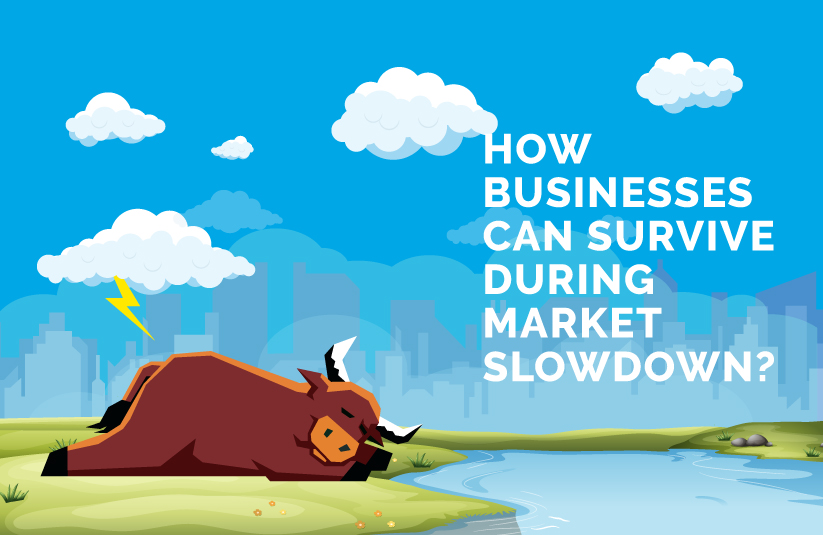European Car Market Slowdown: Economic Uncertainty Impacts Sales

Table of Contents
Rising Inflation and Reduced Consumer Spending
The direct correlation between inflation and a decreased European car market is undeniable. Soaring inflation rates across Europe are eroding consumer purchasing power, leaving less disposable income for discretionary spending, including major purchases like new cars. This is leading to a noticeable slowdown in sales across the board.
- Increased cost of living squeezing disposable income: Essential expenses like food, energy, and housing are consuming a larger portion of household budgets, leaving less money available for non-essential items such as new vehicles.
- Consumers delaying major purchases like new cars: Many potential buyers are postponing their car purchases, opting to maintain their existing vehicles for a longer period. This deferral of demand significantly impacts sales figures for new car dealerships.
- Shift towards used car market as a more affordable option: The used car market is experiencing a surge in demand as consumers seek more budget-friendly alternatives to new vehicles. This increased demand is driving up prices in the secondary market.
- Impact on different car segments (e.g., luxury vs. budget): The impact of inflation is not uniform across all car segments. Luxury car sales are experiencing a steeper decline compared to budget-friendly models, as luxury buyers are more sensitive to economic downturns.
Eurostat reports show inflation in the Eurozone reaching [Insert current Eurozone inflation rate and source], significantly impacting consumer confidence. Surveys indicate a [Insert consumer confidence index and source] drop in consumer confidence, directly correlating to the reduced demand for new vehicles.
Energy Crisis and Supply Chain Disruptions
The ongoing energy crisis in Europe is significantly impacting the automotive industry, both in terms of production and logistics. Higher energy prices are driving up manufacturing costs, while supply chain disruptions are leading to delays and shortages.
- Increased production costs due to higher energy prices: The manufacturing of vehicles is energy-intensive, and the substantial increase in energy costs is directly translating into higher production expenses for car manufacturers.
- Supply chain bottlenecks affecting parts availability: The energy crisis has exacerbated existing supply chain issues, leading to bottlenecks in the delivery of crucial components, including semiconductors and other essential parts.
- Impact on new car deliveries and waiting times: The combination of increased production costs and supply chain disruptions has resulted in extended waiting times for new car deliveries, further deterring potential buyers.
- Geopolitical factors exacerbating supply chain issues: The war in Ukraine and other geopolitical factors have further complicated supply chains, disrupting the flow of raw materials and impacting the timely delivery of parts.
Energy price increases of [Insert percentage increase and source] have significantly impacted automotive production costs. This, combined with supply chain delays, has contributed to the overall slowdown in the European car market.
Geopolitical Instability and Uncertainty
The war in Ukraine and broader geopolitical instability are casting a long shadow over the European car market. Uncertainty surrounding future economic conditions is impacting investment decisions and consumer sentiment.
- Uncertainty impacting investment decisions in the automotive sector: The current geopolitical climate creates significant uncertainty, making automotive manufacturers hesitant to commit to large-scale investments in new production facilities or technologies.
- Disruptions to raw material supplies (e.g., semiconductors, metals): The war in Ukraine and other geopolitical events have disrupted the supply of crucial raw materials, particularly semiconductors and certain metals essential for vehicle production.
- Impact on consumer sentiment and purchasing decisions: Geopolitical uncertainty contributes to decreased consumer confidence, leading to a more cautious approach towards major purchases like new cars.
- Potential for further economic instability: The ongoing geopolitical tensions create the risk of further economic instability, potentially exacerbating the slowdown in the European car market.
The ongoing conflict in Ukraine, coupled with other geopolitical uncertainties, creates a volatile environment impacting the entire European automotive landscape, significantly impacting the European car market slowdown.
The Rise of Electric Vehicles (EVs) Amidst the Slowdown
Despite the overall slowdown, the European car market is witnessing a gradual shift towards electric vehicles (EVs). However, several challenges hinder the rapid adoption of EVs.
- Challenges in EV adoption due to high purchase prices and charging infrastructure limitations: The high upfront cost of EVs and the limited availability of charging infrastructure remain significant barriers to wider adoption.
- Government incentives and policies aimed at boosting EV sales: Governments across Europe are implementing various incentives and policies to encourage EV adoption, such as tax breaks and subsidies.
- The role of EV adoption in shaping the future of the European car market: The long-term success of the European car market hinges on the successful transition to electric mobility.
Statistics show that EV sales in Europe represent [Insert percentage market share and source] of the total car market, indicating a growing, albeit still limited, adoption rate.
Conclusion
The European car market slowdown is a complex issue driven by a confluence of economic, geopolitical, and technological factors. Rising inflation, energy crises, supply chain disruptions, and geopolitical uncertainty all contribute to reduced consumer spending and decreased automotive production. While the rise of electric vehicles presents a pathway for future growth, immediate challenges remain. Understanding the intricacies of this European car market slowdown is crucial for industry stakeholders and consumers alike. Stay informed about the latest developments and adapt your strategies to navigate this challenging period in the European automotive landscape.

Featured Posts
-
 Indiana Pacers Beat Brooklyn Nets Mathurin Scores 28
May 28, 2025
Indiana Pacers Beat Brooklyn Nets Mathurin Scores 28
May 28, 2025 -
 Leeds United News Kalvin Phillips Transfer Update And New Signing
May 28, 2025
Leeds United News Kalvin Phillips Transfer Update And New Signing
May 28, 2025 -
 Jacob Wilson Breakout Star Or Flash In The Pan A Poll Explores
May 28, 2025
Jacob Wilson Breakout Star Or Flash In The Pan A Poll Explores
May 28, 2025 -
 Wes Andersons Venetian Inspiration The Phoenician Hotel Design
May 28, 2025
Wes Andersons Venetian Inspiration The Phoenician Hotel Design
May 28, 2025 -
 Unclaimed Lotto Jackpot Winning Ticket Sold At Shop Name
May 28, 2025
Unclaimed Lotto Jackpot Winning Ticket Sold At Shop Name
May 28, 2025
